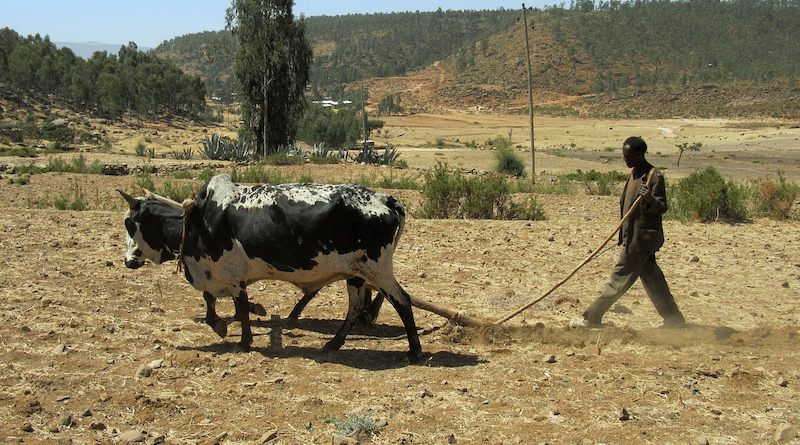The Horn Of Africa States: How A Regional Set Up Would Boost The Agriculture Industry – OpEd
A regional set up of the Horn of Africa States would, no doubt, reduce its huge import bills and help develop processing capacity and mostly in agro-industries and related equipment. According to the World Economic Forum Report of 2016, some 70% of Africa’s population make a living off agriculture and there is no reason why the Horn of Africa States region would be different. In fact, it is between 65% to 70%. It is, therefore, a significant employer of the general population, although in the recent past there has been and still is an ongoing mass exodus into urban settings.
Climate change and vagaries of environment have been a major factor in reducing food production and agriculture, in general, in the region, and hence there was, indeed, a corresponding rise in food imports and most importantly wheat and related products (flour) mostly from the now warring countries of Russia and Ukraine. This has, of course, curbed imports of wheat from those countries and hence has impacted on the region, as many reports indicate.
Agriculture, nevertheless, remains a significant contributor to the economies of the region and its growth and development would only assist food security in the region, which suffers from recurrent droughts and famines. It is where technology and modern management of water resources would be most appropriate, not only to maintain current food production levels but also boost it more to meet the growing needs of a growing population. Agriculture contributes about 38% of the GDP of the region and hence remains the main backbone of the regional economy, followed by the services including trade (about 36%), industry (about 22%) and others (about 4%). Agriculture of the region thus feeds millions of people in the region and beyond every day.
The region’s agriculture, although it currently does contribute to most of cross border trades (formal or informal), has an exceptional potential to meet local growing demand, increase intra-state trade, and help regional GDP growth and create new jobs.
Global shocks have lately been common features encountered in global affairs. There was the COVID-19 Global Pandemic and the currently ongoing Russian-NATO skirmishes in Ukraine, all interfering in logistics and transportation and outright interference in global trading. Both have caused price hikes and food insecurities in many parts of the world and more specifically in the Horn of Africa States, which necessitates focus on agro-processing and meeting local demands locally, and especially, in a region, which has no need to import foods should it put its act in order and work together.
The region, indeed, has the capacity to produce its own foods, develop its own technologies as their ancestors did, and add on to its wealth and job opportunities and hence provide opportunities for investments, and more particularly for its private local investors. Foreign investors would, surely, follow if peace and security is assured and the region is set to working instead of the senseless warring.
The region is reported to own large phosphate deposits and hence can develop its own fertilizer industry, and it is where governments of the region should facilitate local private regional investors to invest, giving investors tax reliefs and other necessary facilities such as helping build road infrastructures, easing of legal processing and other protective support systems to help develop the industry locally, instead of relying on imports, which can be curbed/curtailed at wrong times and moments.
The region should be setting up companies that provide environmental and high-tech solutions to the agricultural sector and help local investors venture into the industry. Many current regulations and laws date back to the socialist era of the region and should be revoked, allowing entrepreneurs to work. Once given the green light and the right investment infrastructures, the private sector would be able to launch not only sizeable businesses in this sector that meets local demands, but which could be exported to other African countries such as neighboring countries of Sudan, South Sudan, Uganda and Kenya and other East African countries. A regional set up of these new companies could benefit from tariff reduction, which in turn would reduce costs (infrastructures, transportation and production).
The HAS regional governments would have to showcase for both local and foreign investors opportunities in the agro-processing and agricultural sectors, Investments would be crucial if the region has to assure itself of its food security and the benefits would ultimately be for the regional population and the leadership could feel secure and sure that they have done their part effectively and diligently.

